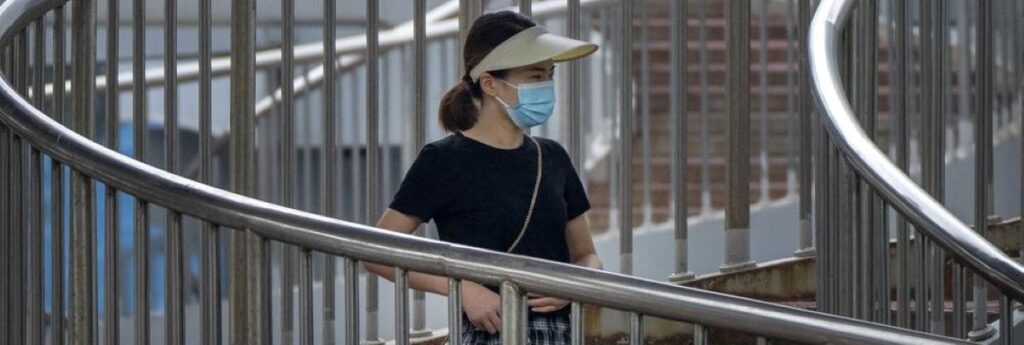China’s worst coronavirus outbreak since the start of the pandemic a year and a half ago escalated Wednesday with dozens more cases around the country, the sealing-off of one city and the punishment of its local leaders.
Since the initial outbreak was tamed last year, China’s people had lived virtually free of the virus, with extremely strict border controls and local distancing and quarantine measures stamping out scattered, small flareups when they occurred.
Now, the country is on high alert as an outbreak of cases connected to the international airport in the eastern city of Nanjing touched at least 17 provinces. China reported 71 new cases of COVID-19 from local transmission Wednesday, more than half of them in coastal Jiangsu province, of which Nanjing is the capital.
In Wuhan, the central city where the first cases of COVID-19 were identified in late 2019, mass testing has shown some of its newly reported cases have a high degree of similarity to cases discovered in Jiangsu province. Those cases have been identified as being caused by the highly transmissible delta variant that first was identified in India.
Meanwhile, another COVID-19 hotspot was emerging in the city of Zhangjiajie, near a scenic area in Hunan province famous for sandstone cliffs, caves, forests and waterfalls that inspired the on-screen landscape in the “Avatar” films.
The city, with a population of about 1.5 million, ordered residential communities sealed Sunday, preventing people from leaving their homes. In a subsequent order on Tuesday, officials said no one, whether tourist or resident, could leave the city.
The city government’s Communist Party disciplinary committee on Wednesday issued a list of local officials who “had a negative impact” on pandemic prevention and control work who would be punished.
The city itself has only recorded 19 cases since last week, three of which were people with no symptoms, which are counted separately. However, individual cases linked to Zhangjiajie’s outbreak have spread to at least five provinces, according to the Shanghai government-owned newspaper the Paper.
Far higher numbers were reported in Yangzhou, a city next to Nanjing, which has recorded 126 cases as of Tuesday.
After announcing last week that they were suspending issuance of passports for travellers except for those with an urgent need, officials at the National Immigration Administration reiterated the message again on Wednesday at a press briefing.
As of Tuesday, China has given more than 1.71 billion vaccine doses to its population of 1.4 billion. It’s not clear how many of those are first or both doses, but at least 40% of the population is fully protected, according to earlier announcements.
Chinese companies have not publicly shared real-world data on how effective their vaccines are against the delta variant, though officials have said the vaccines prevent severe disease and hospitalization.
In addition to the 71 cases of local transmission, 25 travellers from overseas have COVID-19 and have entered quarantine, making the total for Wednesday 96 new cases. The National Health Commission also said 15 people tested positive for the virus but have no symptoms.
China has reported 4,636 deaths and 93,289 cases of COVID-19 overall, most of them from the original outbreak in Wuhan that peaked early last year.
Macao orders closure of entertainment venues, mass testing
Meanwhile, Macao authorities on Wednesday ordered the closure of entertainment venues but not casinos, and coronavirus tests for its 600,000 residents, after the gambling city confirmed four new infections.
The closure covers gyms, bars, massage parlors and karaoke places.
The city also plans to test some 600,000 residents after a family of four tested positive for the more infectious delta coronavirus variant. The mass testing is expected to last three days.
The daughter had recently returned from an exchange trip to mainland China, where authorities believe she was infected.
Macao Chief Executive Ho Iat-seng said at a news conference that if there are no new infections in the next 14 days, normal economic activities will resume.
Macao has reported only 59 coronavirus cases since the pandemic began, with no deaths.
The new cases have sparked concern about the economy of the city that is heavily reliant on tourism. It is the only Chinese city where casinos are legal. Since the pandemic began, casinos and hotels have been hit hard as travel restrictions led to a drastic reduction in the number of affluent visitors.
Authorities in nearby Hong Kong said they removed Macao from a travel program that exempts city arrivals from quarantine.

